

The Microbiology Society Annual Conference 2017 took place between Monday 3 April to Thursday 6 April and was held at the Edinburgh International Conference Centre (EICC), Edinburgh, UK.
The Society’s Annual Conference attracts over 1,200 attendees for Europe’s largest annual gathering of microbiologists.
A PDF version of the programme book can be downloaded below:
If you have any questions please email [email protected]
Follow us on Twitter @MicrobioSoc.
Updates on the Annual Conference 2017 can be found using the hashtag: #Microbio17
Image: rabbit75_ist/Thinkstock.
This session will cover part of the Annual Meeting of the Protistology-UK Society, and it will focus on the infection and endosymbiotic events of different microbes (viruses, bacteria and protozoa) that take place in microbial eukaryotes. The session will seek to discuss, how various organisms cope with the presence of their “endoysmbionts” or “pathogens” and to provide models to study basic processes on the endosymbiont/pathogen-host cell relationship and potentially the origin of new organelles.
Anastasios Tsaousis (University of Kent, UK), Sonja Rueckert (Edinburgh Napier University, UK), David Bass (Natural History Museum, UK)
The identification of genetic components of the circadian clock in diverse organisms from bacteria and fungi to plants and animals suggests that a circadian oscillator is intrinsic to all kingdoms. There is little conservation among the clock components, however, suggesting that clocks have evolved independently and that circadian rhythmicity is an adaptive feature. Alternatively, the conserved circadian rhythms in cellular metabolism could indicate that a conserved oscillator exists in parallel with or indeed on top of 'canonical' clock mechanisms.
Sue Crosthwaite (University of Manchester, UK), Ed Lous (University of Leicester, UK), Elinor Thompson (University of Greenwich, UK), Gerben van Ooijen (University of Edinburgh, UK)
Plant pathogens are often considered less “sexy” than their mammalian counterparts, yet these species represent a major threat to food production worldwide. Moreover, they employ a bewildering array of mechanisms – often borrowed from, or adapted by their mammalian cousins - with which to subvert host defences (or conversely, sometimes even enhance plant growth). In this session, we aim to explore the diverse strategies used by bacteria, fungi and viruses to colonise plant tissues (to the advantage or to the detriment to the host). Topics ranging from the origin(s) and impact of Ash die-back, the roles played by quorum sensing and cyclic-di-GMP in controlling bacterial infection, PAMPs, oomycete effectors and viral infections will be covered by the World’s top experts in these areas. We will also explore why some organisms seem to form mutualistic (rather than pathogenic) relationships with their hosts, and address the cutting-edge technologies that have been developed to investigate these mechanisms and interactions. This is a session for anyone with an interest in the molecular mechanisms that underpin microbial pathogenicity.
Martin Welch (University of Cambridge, UK), Nicola Holden (James Hutton Institute, UK), Kevin Kavanagh (NUI Maynooth, Ireland)
While science strives to harness the potential of nano-technology, it has become apparent that natural selection has already provided many solutions. Advances in molecular biology and high-resolution imaging have revealed the incredible complexity and efficiency of macromolecular protein machines. Prokaryotes have developed nano-scale devices to answer a range of problems including motility, secretion and delivery of bioactive macromolecules into the environment and other cells. Topics covered in this session will be of interest from both a pure academic and more applied biotechnology perspective as they will include the ribosome, pili/fimbrae, flagella and protein secretion. Offered papers on all aspects of prokaryotic (both bacteria and archea) macromolecular machines are welcomed.
Jonathan Shaw (University of Sheffield, UK), Nick Waterfield (University of Warwick, UK), Martin Welch (University of Cambridge, UK), Nicola Holden (The James Hutton Institute, UK)
Geomicrobiology is the study of the role of micro-organisms in influencing geological processes including geochemical cycles. While much of the discipline is less than 40 years old, it is fundamental to the understanding of the origin of life and the role of microbes in the cycling of elements in the environment. Recent advances in the field have come about largely by new approaches (e.g. the “omics” technologies, stable isotope probing, biophysical and microscopy techniques) that allow the detailed study of cultured and uncultured microorganisms and the impact they have on the environment. This session will include topics on the origin of life and evolution, microbial energetics and metabolism, microbial ecology, biomineralisation and mineral precipitation, bioremediation and weathering.
Joanne Santini (University College London, UK), Thomas Clarke (University of East Anglia, UK)
The gastrointestinal (GI) tract provides an accessible environment for virus infection and replication. GI tract viral infections, including those by rotaviruses, noroviruses and astroviruses cause a globally significant burden of mortality and morbidity. Over 70% of cases of infectious diarrhoea are caused by viruses; for example, noroviruses are the leading cause of diarrhoea globally with an estimated 685 million cases a year and are also the main cause of foodborne illness, and rotaviruses cause over 100 million cases of infantile severe gastroenteritis per annum with up to 0.26 million deaths. New vaccines, better understanding of the biology and replication of these viruses, and the comprehension of crosstalk between viral and bacterial components of the microbiome offers ways to reduce this disease burden. This one day conference will provide an overview of the causes of viral gastroenteritis, the epidemiology of infections and viral pathogenesis, coupled with discussions of the immunology of the GI tract and the development of effective vaccines to control and prevent disease.
David Evans (University of St Andrews, UK), Miren Iturriza-Gomara (University of Liverpool, UK)
Synthetic and systems biology approaches are revolutionising basic biological research, promising a paradigm shift in the way biology as a science is approached. As the cost of DNA synthesis plummets, and large scale DNA assembly is within our reach, synthetic and systems biology are promising to bring our understanding of microbes to the level needed for large-scale engineering. Systems biology approaches provide tools needed to understand key cellular physiological functions and ultimately create the basis for robust and reliable cell engineering. The tools of synthetic and systems biology go hand-in-hand and this session will bring together leaders working at the intersection of these fields to provide a timely update on the state-of-the-art. Themes covered will include synthetic biology in extreme conditions, microbial interactions, designing biology and microbial factories. Together the session will provide an exciting overview of the field which looks set to make a significant impact on industrial biotechnology as well as more fundamental microbiology research.
Theme 1: The Synthetic and Systems Biology in Extreme Conditions. This session includes talks on aspects of synthetic and systems approaches in extreme environments and microbes.
Theme 2: Synthetic and Systems Approaches to Microbial Interactions. The ways in which microbes interact plays an influential role in their behaviour both in hosts and in industrial fermenters. This session takes a look at how we can interrogate the basis of these interactions and will be of interest to those exploring microbiomes and industrial biotechnology.
Theme 3: Designing Biology. In this session we will explore the importance of design of synthetic systems from the perspectives of both artists and scientists. What can we design and why?
Theme 4: Microbial Cell Factories. This session will include a range of experts who are using synthetic biology approaches to design new-generation cell factories using microalgal host strains. It will be of interest to a range of delegates interested in industrial biotechnology and will complement the talks on other chassis, e.g. Saccharomyces in the other parts of the session.
Meriem El Karoui (University of Edinburgh, UK), Teuta Pilizota (University of Edinburgh, UK), Susan Rosser (University of Edinburgh, UK), Colin Robinson (University of Kent, UK)
Making a decision about what to do after your PhD can be daunting. When considering the lack of academic positions for newly qualified PhD researchers, it can be helpful to think about the breadth of career options available to you as a highly trained professional scientist - with skills and aptitudes that you may not yet have realised. Dr Sarah Blackford, author of Career Planning for Research Bioscientists, will demonstrate her PhD Career Choice Indicator – showing users how to identify initial career options by looking at their skills and passions. During the afternoon session, participants will also hear from microbiologists who have had interesting career paths and learn top tips for how to build their CV for the career they want – including a chance for their CV to be reviewed by their peers. This session is aimed at early career researchers, however is suitable for those looking to make their next career step.
Microbiology Society Professional Development Committee
The gastrointestinal (GI) tract provides an accessible environment for virus infection and replication. GI tract viral infections, including those by rotaviruses, noroviruses and astroviruses cause a globally significant burden of mortality and morbidity. Over 70% of cases of infectious diarrhoea are caused by viruses; for example, noroviruses are the leading cause of diarrhoea globally with an estimated 685 million cases a year and are also the main cause of foodborne illness, and rotaviruses cause over 100 million cases of infantile severe gastroenteritis per annum with up to 0.26 million deaths. New vaccines, better understanding of the biology and replication of these viruses, and the comprehension of crosstalk between viral and bacterial components of the microbiome offers ways to reduce this disease burden. This one day conference will provide an overview of the causes of viral gastroenteritis, the epidemiology of infections and viral pathogenesis, coupled with discussions of the immunology of the GI tract and the development of effective vaccines to control and prevent disease.
David Evans (University of St Andrews, UK), Miren Iturriza-Gomara (University of Liverpool, UK)
This session will cover part of the Annual Meeting of the Protistology-UK Society, and it will focus on the infection and endosymbiotic events of different microbes (viruses, bacteria and protozoa) that take place in microbial eukaryotes. The session will seek to discuss, how various organisms cope with the presence of their “endoysmbionts” or “pathogens” and to provide models to study basic processes on the endosymbiont/pathogen-host cell relationship and potentially the origin of new organelles.
Anastasios Tsaousis (University of Kent, UK), Sonja Rueckert (Edinburgh Napier University, UK), David Bass (Natural History Museum, UK)
Geomicrobiology is the study of the role of micro-organisms in influencing geological processes including geochemical cycles. While much of the discipline is less than 40 years old, it is fundamental to the understanding of the origin of life and the role of microbes in the cycling of elements in the environment. Recent advances in the field have come about largely by new approaches (e.g. the “omics” technologies, stable isotope probing, biophysical and microscopy techniques) that allow the detailed study of cultured and uncultured microorganisms and the impact they have on the environment. This session will include topics on the origin of life and evolution, microbial energetics and metabolism, microbial ecology, biomineralisation and mineral precipitation, bioremediation and weathering.
Joanne Santini (University College London, UK), Thomas Clarke (University of East Anglia, UK)
The identification of genetic components of the circadian clock in diverse organisms from bacteria and fungi to plants and animals suggests that a circadian oscillator is intrinsic to all kingdoms. There is little conservation among the clock components, however, suggesting that clocks have evolved independently and that circadian rhythmicity is an adaptive feature. Alternatively, the conserved circadian rhythms in cellular metabolism could indicate that a conserved oscillator exists in parallel with or indeed on top of 'canonical' clock mechanisms.
Sue Crosthwaite (University of Manchester, UK), Ed Lous (University of Leicester, UK), Elinor Thompson (University of Greenwich, UK), Gerben van Ooijen (University of Edinburgh, UK)
Plant pathogens are often considered less “sexy” than their mammalian counterparts, yet these species represent a major threat to food production worldwide. Moreover, they employ a bewildering array of mechanisms – often borrowed from, or adapted by their mammalian cousins - with which to subvert host defences (or conversely, sometimes even enhance plant growth). In this session, we aim to explore the diverse strategies used by bacteria, fungi and viruses to colonise plant tissues (to the advantage or to the detriment to the host). Topics ranging from the origin(s) and impact of Ash die-back, the roles played by quorum sensing and cyclic-di-GMP in controlling bacterial infection, PAMPs, oomycete effectors and viral infections will be covered by the World’s top experts in these areas. We will also explore why some organisms seem to form mutualistic (rather than pathogenic) relationships with their hosts, and address the cutting-edge technologies that have been developed to investigate these mechanisms and interactions. This is a session for anyone with an interest in the molecular mechanisms that underpin microbial pathogenicity.
Martin Welch (University of Cambridge, UK), Nicola Holden (James Hutton Institute, UK), Kevin Kavanagh (NUI Maynooth, Ireland)
Making a decision about what to do after your PhD can be daunting. When considering the lack of academic positions for newly qualified PhD researchers, it can be helpful to think about the breadth of career options available to you as a highly trained professional scientist - with skills and aptitudes that you may not yet have realised. Dr Sarah Blackford, author of Career Planning for Research Bioscientists, will demonstrate her PhD Career Choice Indicator – showing users how to identify initial career options by looking at their skills and passions. During the afternoon session, participants will also hear from microbiologists who have had interesting career paths and learn top tips for how to build their CV for the career they want – including a chance for their CV to be reviewed by their peers. This session is aimed at early career researchers, however is suitable for those looking to make their next career step.
Microbiology Society Professional Development Committee
While science strives to harness the potential of nano-technology, it has become apparent that natural selection has already provided many solutions. Advances in molecular biology and high-resolution imaging have revealed the incredible complexity and efficiency of macromolecular protein machines. Prokaryotes have developed nano-scale devices to answer a range of problems including motility, secretion and delivery of bioactive macromolecules into the environment and other cells. Topics covered in this session will be of interest from both a pure academic and more applied biotechnology perspective as they will include the ribosome, pili/fimbrae, flagella and protein secretion. Offered papers on all aspects of prokaryotic (both bacteria and archea) macromolecular machines are welcomed.
Jonathan Shaw (University of Sheffield, UK), Nick Waterfield (University of Warwick, UK), Martin Welch (University of Cambridge, UK), Nicola Holden (The James Hutton Institute, UK)
Synthetic and systems biology approaches are revolutionising basic biological research, promising a paradigm shift in the way biology as a science is approached. As the cost of DNA synthesis plummets, and large scale DNA assembly is within our reach, synthetic and systems biology are promising to bring our understanding of microbes to the level needed for large-scale engineering. Systems biology approaches provide tools needed to understand key cellular physiological functions and ultimately create the basis for robust and reliable cell engineering. The tools of synthetic and systems biology go hand-in-hand and this session will bring together leaders working at the intersection of these fields to provide a timely update on the state-of-the-art. Themes covered will include synthetic biology in extreme conditions, microbial interactions, designing biology and microbial factories. Together the session will provide an exciting overview of the field which looks set to make a significant impact on industrial biotechnology as well as more fundamental microbiology research.
Theme 1: The Synthetic and Systems Biology in Extreme Conditions. This session includes talks on aspects of synthetic and systems approaches in extreme environments and microbes.
Theme 2: Synthetic and Systems Approaches to Microbial Interactions. The ways in which microbes interact plays an influential role in their behaviour both in hosts and in industrial fermenters. This session takes a look at how we can interrogate the basis of these interactions and will be of interest to those exploring microbiomes and industrial biotechnology.
Theme 3: Designing Biology. In this session we will explore the importance of design of synthetic systems from the perspectives of both artists and scientists. What can we design and why?
Theme 4: Microbial Cell Factories. This session will include a range of experts who are using synthetic biology approaches to design new-generation cell factories using microalgal host strains. It will be of interest to a range of delegates interested in industrial biotechnology and will complement the talks on other chassis, e.g. Saccharomyces in the other parts of the session.
Meriem El Karoui (University of Edinburgh, UK), Teuta Pilizota (University of Edinburgh, UK), Susan Rosser (University of Edinburgh, UK), Colin Robinson (University of Kent, UK)
We will review our current understanding on aquatic microbial communities (protists, bacteria, viruses), including their ecological roles in the oceans, their diversity, functions and behaviours but also their heir origins and evolution. The session will be divided into two parts: in the first part, we will discuss the different genetic models that have been developed for marine microeukaryotes/protists, based on the recent initiative from the Gordon and Betty Moore Foundation on “Increasing the Potential of Marine Microeukaryotes as Experimental Model Systems through the Development of Genetic Tools”. The second session will examine the diversity, ecology and evolution of various groups of organisms within these aquatic ecosystems and review the current status quo and potential future applications, which will allow us to deeply understand the complexity and relations of the aquatic micro-organisms in these ecosystems.
Anastasios Tsaousis (University of Kent, UK), Sonja Rueckert (Edinburgh Napier University, UK), David Montagnes (University of Liverpool, UK)
Plant pathogens are often considered less “sexy” than their mammalian counterparts, yet these species represent a major threat to food production worldwide. Moreover, they employ a bewildering array of mechanisms – often borrowed from, or adapted by their mammalian cousins - with which to subvert host defences (or conversely, sometimes even enhance plant growth). In this session, we aim to explore the diverse strategies used by bacteria, fungi and viruses to colonise plant tissues (to the advantage or to the detriment to the host). Topics ranging from the origin(s) and impact of Ash die-back, the roles played by quorum sensing and cyclic-di-GMP in controlling bacterial infection, PAMPs, oomycete effectors and viral infections will be covered by the World’s top experts in these areas. We will also explore why some organisms seem to form mutualistic (rather than pathogenic) relationships with their hosts, and address the cutting-edge technologies that have been developed to investigate these mechanisms and interactions. This is a session for anyone with an interest in the molecular mechanisms that underpin microbial pathogenicity.
Martin Welch (University of Cambridge, UK), Nicola Holden (James Hutton Institute, UK), Kevin Kavanagh (NUI Maynooth, Ireland)
Offered papers will be presented in areas related to infections caused by prokaryotes of human, veterinary or botanical significance including epidemiology, diagnosis, identification, typing, pathogenesis, treatment, antimicrobial agents and resistance, prevention, virulence factors, host responses and immunity, transmission, and models of infection at the cell, tissue or whole organism level.
Sheila Patrick (Queen's University Belfast, UK), Sabine Tötemeyer (University of Nottingham, UK)
Effective communication of scientific findings in both oral and written forms is critical. Poorly communicated research can adversely impact a scientist’s career. In addition, poor English can preclude the proper assessment of the quality of a scientist’s work during the peer-review process. This in part is due to lack of proper instruction in these key areas. The workshop will focus on PhD students, postdoctoral fellows and early career scientists, who are seeking to improve their skills in the preparation of manuscripts for publication in peer-reviewed journals. A certificate of completion will be provided to all participants. At the end of the workshop, the participants will:
• Understand the rigorous process of peer-review in scientific publishing
• Understand what Editors are looking for in a manuscript
• Have the opportunity to meet and network with editors who are highly-knowledgeable in their respective fields
• Understand Society publishing submissions process
• Understand the structure of different types of manuscripts
• Have the opportunity to receive feedback on their work and ask questions
Norman Fry and Kalai Mathee (both Journal of Medical Microbiology, UK)
Synthetic and systems biology approaches are revolutionising basic biological research, promising a paradigm shift in the way biology as a science is approached. As the cost of DNA synthesis plummets, and large scale DNA assembly is within our reach, synthetic and systems biology are promising to bring our understanding of microbes to the level needed for large-scale engineering. Systems biology approaches provide tools needed to understand key cellular physiological functions and ultimately create the basis for robust and reliable cell engineering. The tools of synthetic and systems biology go hand-in-hand and this session will bring together leaders working at the intersection of these fields to provide a timely update on the state-of-the-art. Themes covered will include synthetic biology in extreme conditions, microbial interactions, designing biology and microbial factories. Together the session will provide an exciting overview of the field which looks set to make a significant impact on industrial biotechnology as well as more fundamental microbiology research.
Theme 1: The Synthetic and Systems Biology in Extreme Conditions. This session includes talks on aspects of synthetic and systems approaches in extreme environments and microbes.
Theme 2: Synthetic and Systems Approaches to Microbial Interactions. The ways in which microbes interact plays an influential role in their behaviour both in hosts and in industrial fermenters. This session takes a look at how we can interrogate the basis of these interactions and will be of interest to those exploring microbiomes and industrial biotechnology.
Theme 3: Designing Biology. In this session we will explore the importance of design of synthetic systems from the perspectives of both artists and scientists. What can we design and why?
Theme 4: Microbial Cell Factories. This session will include a range of experts who are using synthetic biology approaches to design new-generation cell factories using microalgal host strains. It will be of interest to a range of delegates interested in industrial biotechnology and will complement the talks on other chassis, e.g. Saccharomyces in the other parts of the session.
Meriem El Karoui (University of Edinburgh, UK), Teuta Pilizota (University of Edinburgh, UK), Susan Rosser (University of Edinburgh, UK), Colin Robinson (University of Kent, UK)
Geomicrobiology is the study of the role of micro-organisms in influencing geological processes including geochemical cycles. While much of the discipline is less than 40 years old, it is fundamental to the understanding of the origin of life and the role of microbes in the cycling of elements in the environment. Recent advances in the field have come about largely by new approaches (e.g. the “omics” technologies, stable isotope probing, biophysical and microscopy techniques) that allow the detailed study of cultured and uncultured microorganisms and the impact they have on the environment. This session will include topics on the origin of life and evolution, microbial energetics and metabolism, microbial ecology, biomineralisation and mineral precipitation, bioremediation and weathering.
Joanne Santini (University College London, UK), Thomas Clarke (University of East Anglia, UK)
Control of expression of virus and host RNA during virus infection is fundamental to the life cycle of all viruses. RNA production is essential for virus replication, gene expression and manipulation of the host environment. Viruses have evolved complex mechanisms of transcription activation, control and termination including epigenetic regulation and recruitment of host factors to promoters and transcriptional enhancers. In addition, the production of non-coding RNAs is essential for some viruses to manipulate the cellular environment and support virus replication. Protein production often requires complex post-transcriptional processing of viral RNAs and nuclear export, facilitated by hijacking host cell systems. This two-day symposium will provide an overview of the regulation of virus transcription of diverse viruses and the many ways in which viruses manipulate cellular gene expression to support productive virus infection.
Colin Crump (University of Cambridge, UK), Alain Kohl (University of Glasgow, UK), Joanna Parish (University of Birmingham, UK), Silke Schepelmann (NIBSC, UK)
Control of expression of virus and host RNA during virus infection is fundamental to the life cycle of all viruses. RNA production is essential for virus replication, gene expression and manipulation of the host environment. Viruses have evolved complex mechanisms of transcription activation, control and termination including epigenetic regulation and recruitment of host factors to promoters and transcriptional enhancers. In addition, the production of non-coding RNAs is essential for some viruses to manipulate the cellular environment and support virus replication. Protein production often requires complex post-transcriptional processing of viral RNAs and nuclear export, facilitated by hijacking host cell systems. This two-day symposium will provide an overview of the regulation of virus transcription of diverse viruses and the many ways in which viruses manipulate cellular gene expression to support productive virus infection.
Colin Crump (University of Cambridge, UK), Alain Kohl (University of Glasgow, UK), Joanna Parish (University of Birmingham, UK), Silke Schepelmann (NIBSC, UK)
We will review our current understanding on aquatic microbial communities (protists, bacteria, viruses), including their ecological roles in the oceans, their diversity, functions and behaviours but also their heir origins and evolution. The session will be divided into two parts: in the first part, we will discuss the different genetic models that have been developed for marine microeukaryotes/protists, based on the recent initiative from the Gordon and Betty Moore Foundation on “Increasing the Potential of Marine Microeukaryotes as Experimental Model Systems through the Development of Genetic Tools”. The second session will examine the diversity, ecology and evolution of various groups of organisms within these aquatic ecosystems and review the current status quo and potential future applications, which will allow us to deeply understand the complexity and relations of the aquatic micro-organisms in these ecosystems.
Anastasios Tsaousis (University of Kent, UK), Sonja Rueckert (Edinburgh Napier University, UK), David Montagnes (University of Liverpool, UK)
This session will involve a range of clinical virology cases which relate to studies relevant to clinical virology network. Different aspects of clinical virology that will be covered include: differential diagnosis of encephalitis, management of hepatitis, diversity of rotavirus sequences, and diagnosis of respiratory infections.
Miren Iturizza-Gomara (University of Liverpoool, UK) and Matthew Donati (Public Health England, UK)
Geomicrobiology is the study of the role of micro-organisms in influencing geological processes including geochemical cycles. While much of the discipline is less than 40 years old, it is fundamental to the understanding of the origin of life and the role of microbes in the cycling of elements in the environment. Recent advances in the field have come about largely by new approaches (e.g. the “omics” technologies, stable isotope probing, biophysical and microscopy techniques) that allow the detailed study of cultured and uncultured microorganisms and the impact they have on the environment. This session will include topics on the origin of life and evolution, microbial energetics and metabolism, microbial ecology, biomineralisation and mineral precipitation, bioremediation and weathering.
Joanne Santini (University College London, UK), Thomas Clarke (University of East Anglia, UK)
Plant pathogens are often considered less “sexy” than their mammalian counterparts, yet these species represent a major threat to food production worldwide. Moreover, they employ a bewildering array of mechanisms – often borrowed from, or adapted by their mammalian cousins - with which to subvert host defences (or conversely, sometimes even enhance plant growth). In this session, we aim to explore the diverse strategies used by bacteria, fungi and viruses to colonise plant tissues (to the advantage or to the detriment to the host). Topics ranging from the origin(s) and impact of Ash die-back, the roles played by quorum sensing and cyclic-di-GMP in controlling bacterial infection, PAMPs, oomycete effectors and viral infections will be covered by the World’s top experts in these areas. We will also explore why some organisms seem to form mutualistic (rather than pathogenic) relationships with their hosts, and address the cutting-edge technologies that have been developed to investigate these mechanisms and interactions. This is a session for anyone with an interest in the molecular mechanisms that underpin microbial pathogenicity.
Martin Welch (University of Cambridge, UK), Nicola Holden (James Hutton Institute, UK), Kevin Kavanagh (NUI Maynooth, Ireland)
Offered papers on all aspects of the genes and genomes of prokaryotes and their mobile elements will be considered, including their sequencing, transcription, translation, regulation, chromosome dynamics, gene transfer, population genetics and evolution, taxonomy and systematics, comparative genomics, metagenomics, bioinformatics, and synthetic biology.
Lori Snyder (Kingston University, UK), Ryan Seipke (University of Leeds, UK), Thorsten Allers (University of Nottingham, UK)
Most reviewers have not received any formal instruction or guidance in the analysis of the various components of a manuscript. This workshop will address how to critique a manuscript and how to write a report. This will be a beneficial workshop for those who are seeking to improve their skills in reviewing manuscripts for scientific journals as part of the peer-review process. In addition, it would help in understanding of requirements for successful publication of manuscripts. The targeted audience will include post-doctoral fellows, and early-career scientists. At the end of the workshop, the participants will:
• Understand the rigorous process of peer-review in scientific publishing,
• Understand what editors are looking for from their reviewers upon invitation to review,
• Have the opportunity to meet and network with well-published editors
• Have the opportunity to review an article
• Have the opportunity to ask questions and receive feedback
Norman Fry and Kalai Mathee (both Journal of Medical Microbiology, UK)
Synthetic and systems biology approaches are revolutionising basic biological research, promising a paradigm shift in the way biology as a science is approached. As the cost of DNA synthesis plummets, and large scale DNA assembly is within our reach, synthetic and systems biology are promising to bring our understanding of microbes to the level needed for large-scale engineering. Systems biology approaches provide tools needed to understand key cellular physiological functions and ultimately create the basis for robust and reliable cell engineering. The tools of synthetic and systems biology go hand-in-hand and this session will bring together leaders working at the intersection of these fields to provide a timely update on the state-of-the-art. Themes covered will include synthetic biology in extreme conditions, microbial interactions, designing biology and microbial factories. Together the session will provide an exciting overview of the field which looks set to make a significant impact on industrial biotechnology as well as more fundamental microbiology research.
Theme 1: The Synthetic and Systems Biology in Extreme Conditions. This session includes talks on aspects of synthetic and systems approaches in extreme environments and microbes.
Theme 2: Synthetic and Systems Approaches to Microbial Interactions. The ways in which microbes interact plays an influential role in their behaviour both in hosts and in industrial fermenters. This session takes a look at how we can interrogate the basis of these interactions and will be of interest to those exploring microbiomes and industrial biotechnology.
Theme 3: Designing Biology. In this session we will explore the importance of design of synthetic systems from the perspectives of both artists and scientists. What can we design and why?
Theme 4: Microbial Cell Factories. This session will include a range of experts who are using synthetic biology approaches to design new-generation cell factories using microalgal host strains. It will be of interest to a range of delegates interested in industrial biotechnology and will complement the talks on other chassis, e.g. Saccharomyces in the other parts of the session.
Meriem El Karoui (University of Edinburgh, UK), Teuta Pilizota (University of Edinburgh, UK), Susan Rosser (University of Edinburgh, UK), Colin Robinson (University of Kent, UK)
We will review our current understanding on aquatic microbial communities (protists, bacteria, viruses), including their ecological roles in the oceans, their diversity, functions and behaviours but also their heir origins and evolution. The session will be divided into two parts: in the first part, we will discuss the different genetic models that have been developed for marine microeukaryotes/protists, based on the recent initiative from the Gordon and Betty Moore Foundation on “Increasing the Potential of Marine Microeukaryotes as Experimental Model Systems through the Development of Genetic Tools”. The second session will examine the diversity, ecology and evolution of various groups of organisms within these aquatic ecosystems and review the current status quo and potential future applications, which will allow us to deeply understand the complexity and relations of the aquatic micro-organisms in these ecosystems.
Anastasios Tsaousis (University of Kent, UK), Sonja Rueckert (Edinburgh Napier University, UK), David Montagnes (University of Liverpool, UK)
In the natural environment or human body, microbes are seldom found in isolation. Rather, they tend to occur in complex communities, each exquisitely adapted and able to respond to the specific environmental conditions. Heterogeneity – microbial, spatial and metabolic – is a characteristic of all communities. In the first stages of development of a microbial population on a surface, substratum recognition – involving surface structure, composition, and microbial adhesins – is key. Then intermicrobial communication processes such as quorum sensing, metabolic dependencies, genetic exchange, and synergistic or antagonistic events, orchestrate development of the overall population. Such interactions often extend beyond the boundaries of microbial classification, resulting in the formation of polymicrobial communities, with interplay between bacteria, fungi and/or viruses. These communities are dynamic, exhibiting spatio-temporal variation and continual adaptation to micro-environments within the population. Better understanding of such complexity presents huge challenges, yet is essential for us in the future to be able to control a spectrum of microbial community associated events in medicine, dentistry, agriculture and industry. We are only in the initial stages of uncovering the secrets of what these communities contain, how they may affect the environment and disease progression, the implications for antimicrobial development, and how we may exploit them for our benefit. Nonetheless, with advances in imaging and -omics technologies, mathematical modelling and combining forces from multiple disciplines, we are making new discoveries about these populations. This session aims to bring together world leaders in the study of complex communities from the prokaryotic, virology and eukaryotic divisions to summarise recent advances in this rapidly expanding area of research, and to identify future ambitions for the field.
Angela Nobbs (University of Bristol, UK), Mark Webber (University of Birmingham, UK), Rebecca Hall (University of Birmingham, UK) and Kim Hardie (University of Nottingham, UK)
Microbial genomics has matured into a distinct discipline, and now influences most other areas of microbiology. The ability to generate, with relative ease, individual and population microbial genome data sets has facilitated new insights into microbial evolution, phylogeography, epidemiology and outbreaks as well as allowing the development of novel approaches to measure and model how genetic variation impacts on phenotype variation. In this symposium we will bring together world leading speakers to present the very latest research encompassing how microbial genomics is developing beyond initial glimpses of microbial diversity, to the next stages of research in this maturing field. Presentations will cover very fine scale resolution mapping of evolutionary dynamics from large population studies. The symposium will then move on to show how we can go back to biology with such genomic data sets, using tools such as genome wide association studies (GWAS) to elucidate biological differences within and between populations. Finally, we will look at cutting edge approaches that allow us to study the impact of genome variation between individual cells within populations, and the evolutionary events occurring in single cells or single infected cells. Talks will be built around these overarching themes and not around any specific microbe. We will also highlight approaches and technologies that have been used in other systems that may also be relevant/applicable to microbial genomics with biology at the focal point.
Nicholas Thomson (Sanger Institute, UK), Alan McNally (Nottingham Trent University, UK), Sam Sheppard (University of Bath, UK)
This workshop will involve a range of clinical virology cases or short papers which relate to studies relevant to clinical virology network. Different aspects of clinical virology that will be covered include differential diagnosis of encephalitis, management of hepatitis, diversity of rotavirus sequences, and diagnosis of respiratory infections. Contributions from early career researchers are particularly welcomed.
Miren Iturizza-Gomara (University of Liverpoool, UK) and Matthew Donati (Public Health England, UK)
Virus evolution can affect important characteristics such as replication host range, tropism, and pathogenesis. On the other hand, there are constraints imposed by nucleotide sequences and proteins they encode. This workshop will address questions related to these topics. The workshop will cover the breadth of virology – human, non-human animal, plant and bacterial – with contributions from early career researchers particularly welcomed.
Erica Bickerton (The Pirbright Institute, UK), Adrian Fox (FERA, UK)
Understanding disease development mechanistically at the cellular, genetic and whole organism level is a vital element in the development of novel therapeutic strategies such as vaccines and small molecule inhibitors. To this end, this workshop will serve as a forum for the presentation of new and exciting data pertaining to all aspects of the pathogenesis of virus infection. The workshop will cover the breadth of virology – human, non-human animal, plant and bacterial – with contributions from early career researchers particularly welcomed.
James Stewart (University of Liverpool, UK), Andrew Macdonald (University of Leeds, UK)
This forum will consider offered papers on all aspects of prokaryotic metabolism and physiology, including fundamental research on the biochemistry and structure of prokaryotic cells, cell growth and division, cell architecture and differentiation, synthesis and transport of macromolecules, ions and small molecules and the cell cycle; but also on the role of physiology in microbial engineering, signalling and communication, sensing and cellular responses, the molecular mechanisms behind these phenomena and their potential applications.
Steve Michell (University of Exeter, UK), Sarah Kuehne (University of Birmingham, UK)
The availability of antiviral small molecules and vaccines has historically lagged behind those targeting bacteria. Accordingly, the public health issues represented by both common and emerging virus infections are considerable, with effective treatments lacking in many cases. Research aimed at translating laboratory findings into either novel or improved anti-viral strategies is therefore a priority. This workshop will highlight ongoing research into burgeoning therapies for important human and animal viral pathogens, encompassing all stages of therapeutic development ranging from the test tube to in vivo studies. The workshop will cover the breadth of virology – human, non-human animal, plant and bacterial – with contributions from early career researchers particularly welcomed.
Stephen Griffin (University of Leeds, UK), Silke Schepelemann (NIBSC, UK)
This workshop will focus on the regulation of viral and host gene expression at the transcriptional and post-transcriptional level by virally-encoded factors and address how viruses control the replication of their genomes. The workshop will cover the breadth of virology – human, non-human animal, plant and bacterial – with contributions from early career researchers particularly welcomed.
Gill Elliott (University of Surrey, UK), Jo Parish (University of Birmingham, UK)
Important functions for noncoding RNAs are currently being revealed in organisms belonging to all domains of life. These include regulation of gene expression via chromatin remodeling, transcriptional interference and altered transcript stability. This session will address the global analysis and evolution of microbial noncoding RNAs, their regulation, mechanism of action, and their place in synthetic biology. The emerging evidence that microbes can take-up RNA from their immediate environment will be addressed, as well as the biology of small ncRNAs that shuttle between eukaryotic microbes and their hosts in cross-kingdom missions of defense and counter defense.
Susan Crosthwaite (University of Manchester, UK), Daniela Delneri (University of Manchester, UK), Ian Roberts (Institute of Food Research, UK)
This session will involve a range of clinical virology cases which relate to studies relevant to clinical virology network. Different aspects of clinical virology that will be covered include: differential diagnosis of encephalitis, management of hepatitis, diversity of rotavirus sequences, and diagnosis of respiratory infections.
Miren Iturizza-Gomara (University of Liverpoool, UK) and Matthew Donati (Public Health England, UK)
This workshop will focus on the regulation of viral and host gene expression at the transcriptional and post-transcriptional level by virally-encoded factors and address how viruses control the replication of their genomes. The workshop will cover the breadth of virology – human, non-human animal, plant and bacterial – with contributions from early career researchers particularly welcomed.
Gill Elliott (University of Surrey, UK), Jo Parish (University of Birmingham, UK)
We will review our current understanding on aquatic microbial communities (protists, bacteria, viruses), including their ecological roles in the oceans, their diversity, functions and behaviours but also their heir origins and evolution. The session will be divided into two parts: in the first part, we will discuss the different genetic models that have been developed for marine microeukaryotes/protists, based on the recent initiative from the Gordon and Betty Moore Foundation on “Increasing the Potential of Marine Microeukaryotes as Experimental Model Systems through the Development of Genetic Tools”. The second session will examine the diversity, ecology and evolution of various groups of organisms within these aquatic ecosystems and review the current status quo and potential future applications, which will allow us to deeply understand the complexity and relations of the aquatic micro-organisms in these ecosystems.
Anastasios Tsaousis (University of Kent, UK), Sonja Rueckert (Edinburgh Napier University, UK), David Montagnes (University of Liverpool, UK)
This session will involve a range of clinical virology cases which relate to studies relevant to clinical virology network. Different aspects of clinical virology that will be covered include: differential diagnosis of encephalitis, management of hepatitis, diversity of rotavirus sequences, and diagnosis of respiratory infections.
Miren Iturizza-Gomara (University of Liverpoool, UK) and Matthew Donati (Public Health England, UK)
Important functions for noncoding RNAs are currently being revealed in organisms belonging to all domains of life. These include regulation of gene expression via chromatin remodeling, transcriptional interference and altered transcript stability. This session will address the global analysis and evolution of microbial noncoding RNAs, their regulation, mechanism of action, and their place in synthetic biology. The emerging evidence that microbes can take-up RNA from their immediate environment will be addressed, as well as the biology of small ncRNAs that shuttle between eukaryotic microbes and their hosts in cross-kingdom missions of defense and counter defense.
Susan Crosthwaite (University of Manchester, UK), Daniela Delneri (University of Manchester, UK), Ian Roberts (Institute of Food Research, UK)
In the natural environment or human body, microbes are seldom found in isolation. Rather, they tend to occur in complex communities, each exquisitely adapted and able to respond to the specific environmental conditions. Heterogeneity – microbial, spatial and metabolic – is a characteristic of all communities. In the first stages of development of a microbial population on a surface, substratum recognition – involving surface structure, composition, and microbial adhesins – is key. Then intermicrobial communication processes such as quorum sensing, metabolic dependencies, genetic exchange, and synergistic or antagonistic events, orchestrate development of the overall population. Such interactions often extend beyond the boundaries of microbial classification, resulting in the formation of polymicrobial communities, with interplay between bacteria, fungi and/or viruses. These communities are dynamic, exhibiting spatio-temporal variation and continual adaptation to micro-environments within the population. Better understanding of such complexity presents huge challenges, yet is essential for us in the future to be able to control a spectrum of microbial community associated events in medicine, dentistry, agriculture and industry. We are only in the initial stages of uncovering the secrets of what these communities contain, how they may affect the environment and disease progression, the implications for antimicrobial development, and how we may exploit them for our benefit. Nonetheless, with advances in imaging and -omics technologies, mathematical modelling and combining forces from multiple disciplines, we are making new discoveries about these populations. This session aims to bring together world leaders in the study of complex communities from the prokaryotic, virology and eukaryotic divisions to summarise recent advances in this rapidly expanding area of research, and to identify future ambitions for the field.
Angela Nobbs (University of Bristol, UK), Mark Webber (University of Birmingham, UK), Rebecca Hall (University of Birmingham, UK) and Kim Hardie (University of Nottingham, UK)
The last two decades have seen an explosion in our understanding of microbial cell surfaces; their structure, composition and function. Recent discoveries, coupled with unprecedented advances in our ability to visualise the cell surface and its dynamics are revolutionising the way in which we think about the cell envelope. Indeed, and now more than ever before, the cell surface is revealing itself to be far more than a simple physical interface with the environment. Not only is the cell surface the front line of defense against antibiotics and the host immune response; it is also involved in environmental sensing, the capture of nutrients and light, movement of the cell, interactions between cells, the formation of cellular communities, and intoxication of nearby competitor species. Not surprisingly, cell surface components have also been exploited as receptors by biological agents (including predatory bacteria; the Bdellovibrio sp.) that target bacteria for their own ends. The speakers in this session are world-leaders in their field who will bring the audience up to date with this fascinating, and highly adaptive, sub-cellular component.
Stephen Michell (University of Exeter, UK), Martin Welch (University of Cambridge, UK)
Microbial genomics has matured into a distinct discipline, and now influences most other areas of microbiology. The ability to generate, with relative ease, individual and population microbial genome data sets has facilitated new insights into microbial evolution, phylogeography, epidemiology and outbreaks as well as allowing the development of novel approaches to measure and model how genetic variation impacts on phenotype variation. In this symposium we will bring together world leading speakers to present the very latest research encompassing how microbial genomics is developing beyond initial glimpses of microbial diversity, to the next stages of research in this maturing field. Presentations will cover very fine scale resolution mapping of evolutionary dynamics from large population studies. The symposium will then move on to show how we can go back to biology with such genomic data sets, using tools such as genome wide association studies (GWAS) to elucidate biological differences within and between populations. Finally, we will look at cutting edge approaches that allow us to study the impact of genome variation between individual cells within populations, and the evolutionary events occurring in single cells or single infected cells. Talks will be built around these overarching themes and not around any specific microbe. We will also highlight approaches and technologies that have been used in other systems that may also be relevant/applicable to microbial genomics with biology at the focal point.
Nicholas Thomson (Sanger Institute, UK), Alan McNally (Nottingham Trent University, UK), Sam Sheppard (University of Bath, UK)
The availability of antiviral small molecules and vaccines has historically lagged behind those targeting bacteria. Accordingly, the public health issues represented by both common and emerging virus infections are considerable, with effective treatments lacking in many cases. Research aimed at translating laboratory findings into either novel or improved anti-viral strategies is therefore a priority. This workshop will highlight ongoing research into burgeoning therapies for important human and animal viral pathogens, encompassing all stages of therapeutic development ranging from the test tube to in vivo studies. The workshop will cover the breadth of virology – human, non-human animal, plant and bacterial – with contributions from early career researchers particularly welcomed.
Stephen Griffin (University of Leeds, UK), Silke Schepelemann (NIBSC, UK)
The innate immune system represents the first line of defence of all living organisms against infection, and in recent years our knowledge of the battle between viruses and innate immunity has increased substantially. This workshop will highlight novel host defence mechanisms and uncover a myriad of virus evasion strategies. The workshop will cover the breadth of virology – human, non-human animal, plant and bacterial where appropriate – with contributions from early career researchers particularly welcomed.
Kate Bishop (The Francis Crick Institute, UK), Alain Kohl (MRC-Centre for Virology, UK)
The assembly of the virus particle, egress from the cell, receptor binding and uncoating are critical events in the life cycle of all viruses. This workshop will focus on the molecular mechanisms involved in these processes. The workshop will cover the breadth of virology – human, non-human animal, plant and bacterial – with contributions from early career researchers particularly welcomed.
David Evans (University of St Andrews, UK), Colin Crump (University of Cambridge, UK)
Understanding disease development mechanistically at the cellular, genetic and whole organism level is a vital element in the development of novel therapeutic strategies such as vaccines and small molecule inhibitors. To this end, this workshop will serve as a forum for the presentation of new and exciting data pertaining to all aspects of the pathogenesis of virus infection. The workshop will cover the breadth of virology – human, non-human animal, plant and bacterial – with contributions from early career researchers particularly welcomed.
James Stewart (University of Liverpool, UK), Andrew Macdonald (University of Leeds, UK)
Intracellular pathogens have evolved many strategies to enter the cytoplasm of their hosts in order to replicate, assemble new progeny, and evade immune detection. Viruses and bacteria can subvert host cell behaviour in diverse ways, inducing or modifying the full compendium of cellular endocytic pathways and/or reprogramming normal maturation of cellular vesicular carriers and endomembrane systems. This session will bring together microbiologists and cell biologists who study pathogen entry, membrane trafficking, and pathogen-induced cytoskeletal rearrangement. The session will seek to emphasise how pathogens are the ideal tools to probe the function of host cell systems, define novel host-pathogen interactions and uncover possible targets for cell-based therapeutic intervention.
Gareth Bloomfield (University of Cambridge, UK), Jason King (University of Sheffield, UK), Jason Mercer (University College London, UK)
The last two decades have seen an explosion in our understanding of microbial cell surfaces; their structure, composition and function. Recent discoveries, coupled with unprecedented advances in our ability to visualise the cell surface and its dynamics are revolutionising the way in which we think about the cell envelope. Indeed, and now more than ever before, the cell surface is revealing itself to be far more than a simple physical interface with the environment. Not only is the cell surface the front line of defense against antibiotics and the host immune response; it is also involved in environmental sensing, the capture of nutrients and light, movement of the cell, interactions between cells, the formation of cellular communities, and intoxication of nearby competitor species. Not surprisingly, cell surface components have also been exploited as receptors by biological agents (including predatory bacteria; the Bdellovibrio sp.) that target bacteria for their own ends. The speakers in this session are world-leaders in their field who will bring the audience up to date with this fascinating, and highly adaptive, sub-cellular component.
Stephen Michell (University of Exeter, UK), Martin Welch (University of Cambridge, UK)
Anaerobes, in the context of infection, are defined as requiring strict anaerobic conditions for isolation from clinical samples. This session will highlight insights obtained from metagenomic/whole-genome sequencing, molecular aspects of virulence and the impact of change in antimicrobial use in both medical and veterinary infection. Microbial community interactions will be considered in relation to: the ovine foot-rot microbiota and the key role of Dichelobacter nodosus; human oral microbiota changes and progression in periodontal disease; gut microbiota/Clostridum difficile interactions; and Propionibacterium acnes skin microbiota and human disease associations. Clostridium perfringens, classically associated with gas gangrene and lethal post-abortion septicaemia after unregulated pregnancy termination in humans, has emerged as a major cause of necrotising enteritis in poultry, linked with a ban on in-feed antibiotics. Similarly, reduction in antibiotic prescription for a ‘sore throat’ has been linked to the rise in Fusobacterium necrophorum infection, potentially lethal in healthy young adults. In contrast, increase in the use of metronidazole, for example in Helicobacter pylori eradication, may contribute to the spread of nim mediated resistance within the gut microbiota, leading to lethal multi-drug resistant Bacteroides fragilis infection in humans. The symposium will provide insight into current and emerging/re-emerging anaerobic infection of both medical and veterinary importance.
Sheila Patrick (Queen's University Belfast, UK), Sarah Kuehne (University of Birmingham, UK), Sabine Tötemeyer (University of Nottingham, UK)
This session will highlight recent developments in the area of fungal pathogenesis and in particular the threats caused by emerging fungal pathogens. In addition to considering the molecular basis of pathogenicity, speakers will also explore the host-pathogen interaction, highlighting the challenges we face in tackling this increasing threat to global human health. By better understanding the pathobiology of fungal diseases, we will be able to generate new, more effective diagnostics, novel therapeutic approaches and new antifungal drugs. The session is being run jointly with the Medical Mycology and Fungal Immunology (MMFI) Consortium based at the University of Aberdeen. Early career researchers will be encouraged to present their recent findings through offered papers.
Mick Tuite (University of Kent, UK), Neil Gow (University of Aberdeen, UK)
Offered papers focusing on any area in microbial ecology, including (non-human) host–microbe communities and interactions, marine and freshwater microbiology, soil and geomicrobiology, and air-, cryo- and extremophile microbiology will be presented.
Ryan Seipke (University of Leeds, UK), Nicola Holden (The James Hutton Institute, UK)
Important functions for noncoding RNAs are currently being revealed in organisms belonging to all domains of life. These include regulation of gene expression via chromatin remodeling, transcriptional interference and altered transcript stability. This session will address the global analysis and evolution of microbial noncoding RNAs, their regulation, mechanism of action, and their place in synthetic biology. The emerging evidence that microbes can take-up RNA from their immediate environment will be addressed, as well as the biology of small ncRNAs that shuttle between eukaryotic microbes and their hosts in cross-kingdom missions of defense and counter defense.
Susan Crosthwaite (University of Manchester, UK), Daniela Delneri (University of Manchester, UK), Ian Roberts (Institute of Food Research, UK)
In the natural environment or human body, microbes are seldom found in isolation. Rather, they tend to occur in complex communities, each exquisitely adapted and able to respond to the specific environmental conditions. Heterogeneity – microbial, spatial and metabolic – is a characteristic of all communities. In the first stages of development of a microbial population on a surface, substratum recognition – involving surface structure, composition, and microbial adhesins – is key. Then intermicrobial communication processes such as quorum sensing, metabolic dependencies, genetic exchange, and synergistic or antagonistic events, orchestrate development of the overall population. Such interactions often extend beyond the boundaries of microbial classification, resulting in the formation of polymicrobial communities, with interplay between bacteria, fungi and/or viruses. These communities are dynamic, exhibiting spatio-temporal variation and continual adaptation to micro-environments within the population. Better understanding of such complexity presents huge challenges, yet is essential for us in the future to be able to control a spectrum of microbial community associated events in medicine, dentistry, agriculture and industry. We are only in the initial stages of uncovering the secrets of what these communities contain, how they may affect the environment and disease progression, the implications for antimicrobial development, and how we may exploit them for our benefit. Nonetheless, with advances in imaging and -omics technologies, mathematical modelling and combining forces from multiple disciplines, we are making new discoveries about these populations. This session aims to bring together world leaders in the study of complex communities from the prokaryotic, virology and eukaryotic divisions to summarise recent advances in this rapidly expanding area of research, and to identify future ambitions for the field.
Angela Nobbs (University of Bristol, UK), Mark Webber (University of Birmingham, UK), Rebecca Hall (University of Birmingham, UK) and Kim Hardie (University of Nottingham, UK)
Microbial genomics has matured into a distinct discipline, and now influences most other areas of microbiology. The ability to generate, with relative ease, individual and population microbial genome data sets has facilitated new insights into microbial evolution, phylogeography, epidemiology and outbreaks as well as allowing the development of novel approaches to measure and model how genetic variation impacts on phenotype variation. In this symposium we will bring together world leading speakers to present the very latest research encompassing how microbial genomics is developing beyond initial glimpses of microbial diversity, to the next stages of research in this maturing field. Presentations will cover very fine scale resolution mapping of evolutionary dynamics from large population studies. The symposium will then move on to show how we can go back to biology with such genomic data sets, using tools such as genome wide association studies (GWAS) to elucidate biological differences within and between populations. Finally, we will look at cutting edge approaches that allow us to study the impact of genome variation between individual cells within populations, and the evolutionary events occurring in single cells or single infected cells. Talks will be built around these overarching themes and not around any specific microbe. We will also highlight approaches and technologies that have been used in other systems that may also be relevant/applicable to microbial genomics with biology at the focal point.
Nicholas Thomson (Sanger Institute, UK), Alan McNally (Nottingham Trent University, UK), Sam Sheppard (University of Bath, UK)
Control of expression of virus and host RNA during virus infection is fundamental to the life cycle of all viruses. RNA production is essential for virus replication, gene expression and manipulation of the host environment. Viruses have evolved complex mechanisms of transcription activation, control and termination including epigenetic regulation and recruitment of host factors to promoters and transcriptional enhancers. In addition, the production of non-coding RNAs is essential for some viruses to manipulate the cellular environment and support virus replication. Protein production often requires complex post-transcriptional processing of viral RNAs and nuclear export, facilitated by hijacking host cell systems. This two-day symposium will provide an overview of the regulation of virus transcription of diverse viruses and the many ways in which viruses manipulate cellular gene expression to support productive virus infection.
Colin Crump (University of Cambridge, UK), Alain Kohl (University of Glasgow, UK), Joanna Parish (University of Birmingham, UK), Silke Schepelmann (NIBSC, UK)
Anaerobes, in the context of infection, are defined as requiring strict anaerobic conditions for isolation from clinical samples. This session will highlight insights obtained from metagenomic/whole-genome sequencing, molecular aspects of virulence and the impact of change in antimicrobial use in both medical and veterinary infection. Microbial community interactions will be considered in relation to: the ovine foot-rot microbiota and the key role of Dichelobacter nodosus; human oral microbiota changes and progression in periodontal disease; gut microbiota/Clostridum difficile interactions; and Propionibacterium acnes skin microbiota and human disease associations. Clostridium perfringens, classically associated with gas gangrene and lethal post-abortion septicaemia after unregulated pregnancy termination in humans, has emerged as a major cause of necrotising enteritis in poultry, linked with a ban on in-feed antibiotics. Similarly, reduction in antibiotic prescription for a ‘sore throat’ has been linked to the rise in Fusobacterium necrophorum infection, potentially lethal in healthy young adults. In contrast, increase in the use of metronidazole, for example in Helicobacter pylori eradication, may contribute to the spread of nim mediated resistance within the gut microbiota, leading to lethal multi-drug resistant Bacteroides fragilis infection in humans. The symposium will provide insight into current and emerging/re-emerging anaerobic infection of both medical and veterinary importance.
Sheila Patrick (Queen's University Belfast, UK), Sarah Kuehne (University of Birmingham, UK), Sabine Tötemeyer (University of Nottingham, UK)
Intracellular pathogens have evolved many strategies to enter the cytoplasm of their hosts in order to replicate, assemble new progeny, and evade immune detection. Viruses and bacteria can subvert host cell behaviour in diverse ways, inducing or modifying the full compendium of cellular endocytic pathways and/or reprogramming normal maturation of cellular vesicular carriers and endomembrane systems. This session will bring together microbiologists and cell biologists who study pathogen entry, membrane trafficking, and pathogen-induced cytoskeletal rearrangement. The session will seek to emphasise how pathogens are the ideal tools to probe the function of host cell systems, define novel host-pathogen interactions and uncover possible targets for cell-based therapeutic intervention.
Gareth Bloomfield (University of Cambridge, UK), Jason King (University of Sheffield, UK), Jason Mercer (University College London, UK)
In the natural environment or human body, microbes are seldom found in isolation. Rather, they tend to occur in complex communities, each exquisitely adapted and able to respond to the specific environmental conditions. Heterogeneity – microbial, spatial and metabolic – is a characteristic of all communities. In the first stages of development of a microbial population on a surface, substratum recognition – involving surface structure, composition, and microbial adhesins – is key. Then intermicrobial communication processes such as quorum sensing, metabolic dependencies, genetic exchange, and synergistic or antagonistic events, orchestrate development of the overall population. Such interactions often extend beyond the boundaries of microbial classification, resulting in the formation of polymicrobial communities, with interplay between bacteria, fungi and/or viruses. These communities are dynamic, exhibiting spatio-temporal variation and continual adaptation to micro-environments within the population. Better understanding of such complexity presents huge challenges, yet is essential for us in the future to be able to control a spectrum of microbial community associated events in medicine, dentistry, agriculture and industry. We are only in the initial stages of uncovering the secrets of what these communities contain, how they may affect the environment and disease progression, the implications for antimicrobial development, and how we may exploit them for our benefit. Nonetheless, with advances in imaging and -omics technologies, mathematical modelling and combining forces from multiple disciplines, we are making new discoveries about these populations. This session aims to bring together world leaders in the study of complex communities from the prokaryotic, virology and eukaryotic divisions to summarise recent advances in this rapidly expanding area of research, and to identify future ambitions for the field.
Angela Nobbs (University of Bristol, UK), Mark Webber (University of Birmingham, UK), Rebecca Hall (University of Birmingham, UK) and Kim Hardie (University of Nottingham, UK)
The last two decades have seen an explosion in our understanding of microbial cell surfaces; their structure, composition and function. Recent discoveries, coupled with unprecedented advances in our ability to visualise the cell surface and its dynamics are revolutionising the way in which we think about the cell envelope. Indeed, and now more than ever before, the cell surface is revealing itself to be far more than a simple physical interface with the environment. Not only is the cell surface the front line of defense against antibiotics and the host immune response; it is also involved in environmental sensing, the capture of nutrients and light, movement of the cell, interactions between cells, the formation of cellular communities, and intoxication of nearby competitor species. Not surprisingly, cell surface components have also been exploited as receptors by biological agents (including predatory bacteria; the Bdellovibrio sp.) that target bacteria for their own ends. The speakers in this session are world-leaders in their field who will bring the audience up to date with this fascinating, and highly adaptive, sub-cellular component.
Stephen Michell (University of Exeter, UK), Martin Welch (University of Cambridge, UK)
Microbial genomics has matured into a distinct discipline, and now influences most other areas of microbiology. The ability to generate, with relative ease, individual and population microbial genome data sets has facilitated new insights into microbial evolution, phylogeography, epidemiology and outbreaks as well as allowing the development of novel approaches to measure and model how genetic variation impacts on phenotype variation. In this symposium we will bring together world leading speakers to present the very latest research encompassing how microbial genomics is developing beyond initial glimpses of microbial diversity, to the next stages of research in this maturing field. Presentations will cover very fine scale resolution mapping of evolutionary dynamics from large population studies. The symposium will then move on to show how we can go back to biology with such genomic data sets, using tools such as genome wide association studies (GWAS) to elucidate biological differences within and between populations. Finally, we will look at cutting edge approaches that allow us to study the impact of genome variation between individual cells within populations, and the evolutionary events occurring in single cells or single infected cells. Talks will be built around these overarching themes and not around any specific microbe. We will also highlight approaches and technologies that have been used in other systems that may also be relevant/applicable to microbial genomics with biology at the focal point.
Nicholas Thomson (Sanger Institute, UK), Alan McNally (Nottingham Trent University, UK), Sam Sheppard (University of Bath, UK)
Control of expression of virus and host RNA during virus infection is fundamental to the life cycle of all viruses. RNA production is essential for virus replication, gene expression and manipulation of the host environment. Viruses have evolved complex mechanisms of transcription activation, control and termination including epigenetic regulation and recruitment of host factors to promoters and transcriptional enhancers. In addition, the production of non-coding RNAs is essential for some viruses to manipulate the cellular environment and support virus replication. Protein production often requires complex post-transcriptional processing of viral RNAs and nuclear export, facilitated by hijacking host cell systems. This two-day symposium will provide an overview of the regulation of virus transcription of diverse viruses and the many ways in which viruses manipulate cellular gene expression to support productive virus infection.
Colin Crump (University of Cambridge, UK), Alain Kohl (University of Glasgow, UK), Joanna Parish (University of Birmingham, UK), Silke Schepelmann (NIBSC, UK)
The poster abstract book can be downloaded below:
Poster numbers will be provided one week before the Conference and a poster registration desk will be onsite for support throughout the event.
Those who are presenting a poster must ensure the work is presented as below. Incorrectly formatted posters will not be displayed.
We have produced a guide on how to give a poster presentation, which can be downloaded below:
Please check the online programme for your allocated time slot. You can search the programme using a keyword or name/
Presenters will be required to upload their talk in good time at the speaker preview suite.
In order to ensure your presentation runs smoothly, you are asked to comply with the following:
We have produced a guide on how to give an oral presentation, which can be downloaded below:
A companion video on top tips for presentation is also available:
At our 2017 Conference, we will be showcasing some of the posters on display during our flash poster presentations. These will take place at our Society stand every lunchtime. Flash poster presenters will be selected in advance by the session organisers and those chosen to take part will be informed prior to the Conference. If chosen, you will need to:
There will be four poster prizes available to recognise the best poster presenters over the course of the entire Annual Conference. Please see below for details of each prize. All poster prize winners will be invited to present their poster again at the Society's Annual General Meeting in September 2017.
All poster presenters will be considered for the Microbiology Society Journals' 'Most Promising Science' Prize. At least two prizes will be awarded to posters that present particularly compelling or novel research within the subject areas of the following Society journals: Microbiology, Journal of General Virology, Journal of Medical Microbiology and Microbial Genomics. This prize will be judged by Editors from all journals, with the winner receiving a small cash prize and certificate. For more information on the journals, visit www.microbiologyresearch.org.
All poster presenters will be considered for the Principal Investigator Poster Prize. Three prizes will be awarded to excellent posters based on the innovation and novelty of the research presented. This prize will be judged by members of the Society's Divisions, Counil and Committees, with the winners receiving a small cash prize and certificate.
All members of the Early Career Microbiologists' (ECM) Forum who are presenting posters will be considered for the ECM Forum Poster Prize. This prize will be judged by the Executive Committee and will recognise the most promising ECM presenters. The winners will receive a prize and certificate.
Please note, the deadline for joining the ECM Forum in order to be considered for the Early Career Microbiologists' Forum Poster Prize is 22 March 2017.
All poster presenters will be entered into the People's Choice Poster Prize, which will identify the three most popular posters presented during the Annual Conference. All delegates will be asked to choose their favourite three posters that they visited and submit these on the voting slip provided in their delegate bag. Winners will be notified by 6 May 2017.
Each year, the Young Microbiologist of the Year Competition recognises and rewards excellence in science communication by a Microbiology Society Member who is a postgraduate student or postdoctoral researcher, having gained their PhD in the last two years.
During the Annual Conference, judges will be visiting posters and listening to offered orals by delegates who have entered the competition via the abstract submission. Finalists will be notified in early summer if they have been selected, and will be invited to give a 10-minute oral presentation (plus 5 minutes for questions) at the final at the Society’s Annual General Meeting in September 2017.
|
Registration Categories |
Early bird rate Extended to Thursday 16 March 17 |
Full price rate SOLD OUT |
Late rate SOLD OUT |
|
|
PER PERSON/ PER DAY |
PER PERSON/ PER DAY |
PER PERSON/ PER DAY |
|
Non-member |
£200 |
£210 |
£220 |
|
Full Member |
£100 |
£110 |
£120 |
|
Full-Concessionary Member |
£60 |
£70 |
£80 |
|
Honorary Members |
|||
|
International Associate Member – Worldwide (excluding lower-middle and low income economies) |
£100 |
£110 |
£120 |
|
International Associate Member – Resident in lower-middle income economies* |
£60 |
£70 |
£80 |
|
International Associate Member – Resident in low income economies** |
£55 |
£65 |
£75 |
|
Postgraduate Student Member |
£55 |
£65 |
£75 |
|
Undergraduate Student Member |
|||
|
CVN Member (Attendance Tuesday PM and all day Wednesday only) |
£120 |
£130 |
£140 |
*See:
**See:
When registering online you will also be able to secure your place on the following additional events. Please note, places are very limited and once fully allocated these events will no longer be open for bookings.
|
Event |
Limited Places Per Person |
|
Sunday night pre-Conference networking event with dinner at the EICC |
£20 |
|
Social programme Monday night: Quiz night with dinner at the Ghillie Dhu |
£25 |
|
Social programme Wednesday night: Traditional ceilidh dinner and dance at The Hub |
£50 |
Attending your first conference? Maybe you’re travelling alone, daunted by the prospect of meeting new people, or maybe you’d just like to brush off your networking skills ready for a busy conference ahead. Whatever your reason for attending, the pre-conference networking event is the place to be on the Sunday before the Annual Conference. You’ll get to know many other delegates whilst taking part in interactive games, and also have the chance to practice networking with senior members of the Society. Why not take the opportunity to gather up an audience for your presentation later in the week, and join us as we kick start the conference.
Tickets are available for £20, this includes a packed schedule of activities, dinner and drinks. Book is via conference registration – make sure to book early to avoid disappointment: this event sells out very quickly.
Feedback from delegates at previous events:
"This was a great way to meet new people, especially when I didn't know many."
"I got to meet people at all different levels within academia in all different specialisms."
"The highlight for me was exchanging contact details with other delegates who had useful information about my project."
"As an undergraduate student, I have really benefitted from meeting new people and learning how to speak with scientists further in their career."
Applications for Society Conference Grants for Annual Conference 2017 are now closed. Eligible Full, Full Concessionary and Postgraduate Student Members who are ineligible for Society Conference Grants may apply to the 1 March deadline of Travel Grants. Please contact [email protected] for further queries.
Upon registration you should receive an automated confirmation email. Please contact [email protected] if after 24 hours this has not been received.
If you need a letter of invitation for a visa application, we will be happy to supply this after we have received full payment. To find out if you need a visa to visit the UK, please visit the UK visa and immigration website.
It is the policy of the Microbiology Society not to supply an invitation letter to any delegate without payment and we will not reply to any request from an unregistered delegate. When the delegate has paid, the Conference office will email back a confirmation/receipt letter and, upon request, a letter of invitation, which may be used to obtain the necessary visa.
Please note that all conference delegates are responsible for their own travel and visa arrangements; the Microbiology Society will not take any responsibility for travel or visa problems.
All registration fees must be paid in full BEFORE arrival at the conference. Any outstanding registration fees must be paid before admittance will be granted to the conference.
Refunds are not provided, however substitutions of attendees can be made at any time by contacting [email protected].
The conference was held at the Edinburgh International Conference Centre (EICC):
Edinburgh International Conference Centre
The Exchange
Edinburgh
EH3 8EE
General enquiries: +44(0)131 300 3000
Email: [email protected]
If you are travelling using a sat nav, please use the postcode EH3 8EE. The main entrance is on Morrison Street.
Edinburgh International Airport is within 6 miles of the EICC. The Airlink 100 runs between Edinburgh Airport and the city centre every 10 minutes at peak times, with the journey taking 20 minutes. This service starts at 4.30am and runs until 12.22am. Tickets cost £3.50 single and £6.00 return. Delegates are advised to disembark at Haymarket Railway Station and to follow signs for EICC on foot (5-minute walk).
The N22 bus also departs from the Aiport and runs every 30 minutes through the night until the Airlink service starts again. For more information about these services, visit www.flybybus.com.
EICC has an established relationship with Virgin Atlantic, who can offer discounted flights between Edinburgh and London on their new service, Virgin Atlantic Little Red. For more information on discounted flights, visit the Virgin Atlantic website.
Edinburgh has two railway stations – Waverley and Haymarket. Waverley is the main station, with direct routes to many cities across the UK. For more information on travelling by rail to Edinburgh, visit East Coast Trains or the National Rail website.
Virgin Trains offer discounted group travel for groups of between three and nine passengers travelling together. This currently stands at a 20% discount off Advance tickets booked through their website – for more information, visit the group tickets page of their website.
Edinburgh's main bus terminal is located at St Andrews Square. Visit Lothian Buses for more information on local bus services.
For information about travel by coach please visit the National Express website.
There are many car parks within close walking distance of the EICC. Please see the EICC website for more details.
Edinburgh is a popular destination, therefore we highly recommend you secure your accommodation as soon as possible.
To aid you with this process, our booking agent Reservation Highway has secured a range of accommodation options to suit all budgets throughout Edinburgh, at discounted rates.
All accommodation can be booked online through Reservation Highway's website, or alternatively you can complete the offline booking form, which can be downloaded below:
For further information and booking, please contact Reservation Highway:
Phone: +44 (0)1423 525 577
Email: [email protected]
On the Monday and Wednesday nights of Annual Conference 2017, we have organised two great social events for delegates. Please see below for more information.
Put your general knowledge to the test by joining our fun quiz night on Monday evening! The quiz will be held at the impressive Ghillie Dhu from 20:00–23:00.
The night will start with a glass of something fizzy, followed by the quiz, alongside a fork buffet.
The quiz will start at 20:45 so make sure to be there with plenty of time to get yourself onto a team. We advise teams of 8–10 people.
The £25 ticket includes a welcome drink, fork buffet supper and entry to the quiz. Make sure to book your place soon as space is limited. A cash bar will be available throughout the evening.
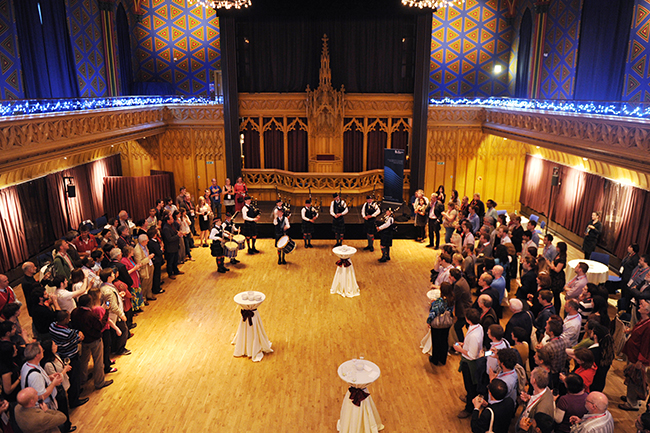
Join us on Wednesday at The Hub for dinner and dancing to celebrate the last night at the Annual Conference. Guests will be able to enjoy a glass of sparkling wine on arrival, and then a five-option buffet dinner and half a bottle of wine per person.
All of this will be followed by a highly recommended, three-piece ceilidh band called Reel Time, who will get you onto the dancefloor to learn some traditional but simple ceilidh dancing. A cash bar will be available for those who wish to party into the night.
Tickets cost £50 and can be purchased online when registering for the Conference. We recommend booking early as places are strictly limited.
If this is your first conference, we have created a guide to help you get the most out of your attendance. This can be downloaded below:
Registration opens at 07:30 each day and will be located by the main entrance at the EICC. If you have any questions or need support, please visit the Conferences team here.
Badges are issued by the Microbiology Society and are only to be used by the named person for the days indicated. For security purposes, badges must be worn at all times during the Conference.
A certificate of attendance can be requested at the Registration Desk or by emailing [email protected]
The Conference has been accredited by the Royal Society of Biology (144 credits), the Royal College of Pathologists (34 credits), and the Institute of Biomedical Science (category Other).
Those wishing to claim CPD credits should sign a daily register held at the Professional Development information desk, which is located in the exhibition hall. Further information can be requested by email at [email protected].
Please ensure your mobile phone is switched to silent mode or off during the scientific sessions.
While every effort has been made to ensure the programme is accurate, changes are unavoidable. We will ensure updates are provided throughout the Conference and update our online programme.
Posters will be presented during the lunch and evening breaks and posters will be rotated during the conference. An abstracts book can be located on our website and links to abstracts for oral presentations are now in our online programme.
For a chance to win with our Passport to Prizes competition, you need to complete the quiz sheet in your delegate bag. The prize draw will take place on Wednesday evening at the stand and your entries must handed at the registration desk by lunchtime on Wednesday.
The Society will be carrying out filming and photography throughout the Conference. The images and videos will be used to promote the Conference and the activities of the Society. They may be used online, in Society publications, or for other PR and marketing purposes.
If you do not wish to appear in photographs or films, please make this known to a member of the team.
Only recording set up with prior permission is authorised.
All disclosed dietary requirements made at the point of registration have been shared with the catering team at the EICC in advance. However, please ensure you ask for advice if required and the catering team will do their best to accommodate your needs.
Delegates, exhibitors and speakers tweeting from the Conference are invited to include the hashtag #Microbio17 in their tweets. You can follow the Society on Twitter @MicrobioSoc.
Our Annual Conference provides the ultimate gathering location for over 1,200 microbiologists and other professionals of related fields from over 20 countries. The exhibition is located in a high-traffic area, where all conference meals, coffee breaks and drinks receptions will be held, offering an excellent opportunity to demonstrate your products, interact with conference delegates and maximise leads.
You can choose from Gold, Silver and Bronze packages, or Pick and Mix options that can be tailored to your needs and your budget.
Detailed information about available exhibition packages can be found in the Exhibition and Sponsorship Pack, which can be downloaded below:
Download the latest floor plan here:
To book your exhibition or sponsorship place, please download the fillable registration form below and return the completed form to [email protected]
This year, we are able to offer bespoke sponsorship opportunities that can be found on page 12 of the Exhibition & Sponsorship Pack. Please contact us for further information.
If you are interested in exhibiting at Annual Conference 2017 or any of our other events, please contact [email protected].
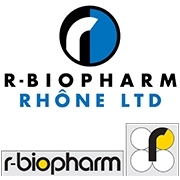
|

|
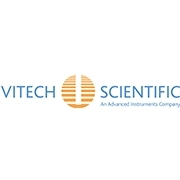
|
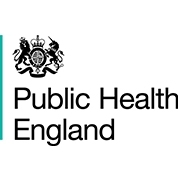
|
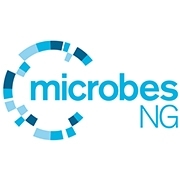
|
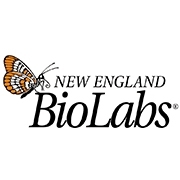
|
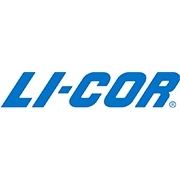
|
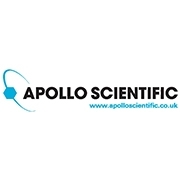
|
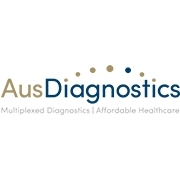
|

|

|

|
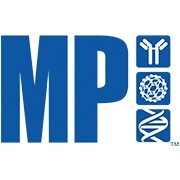
|

|

|
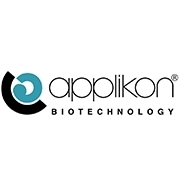
|
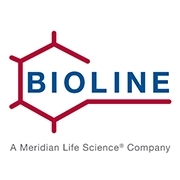
|
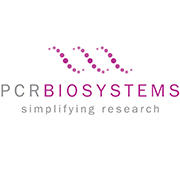
|
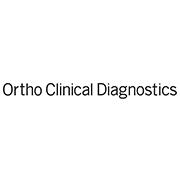
|
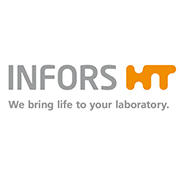
|
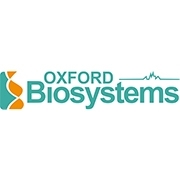
|
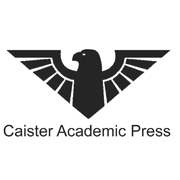
|
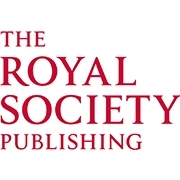
|
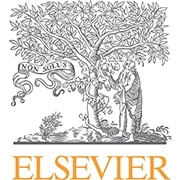
|

|
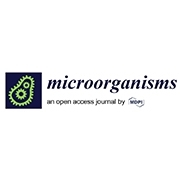
|
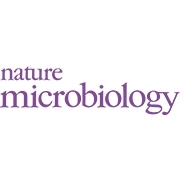
|

|

|
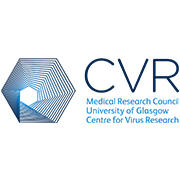
|